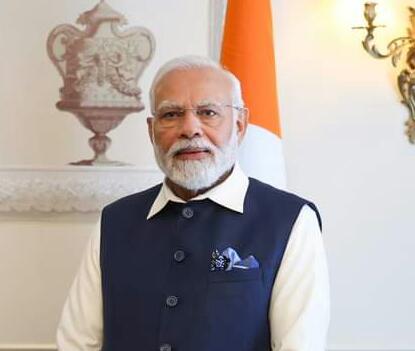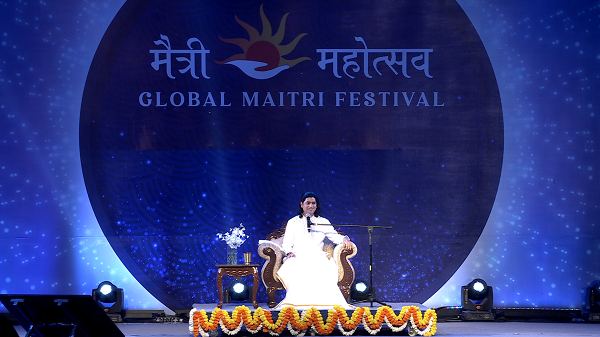
New Delhi, Delhi, 3rd of October, 2024 : The Union Cabinet chaired by the Prime Minister Shri Narendra Modi has approved to confer the status of Classical Language to Marathi, Pali, Prakrit, Assamese and Bengali languages. The Classical Languages serve as a custodian of Bharat’s profound and ancient cultural heritage, embodying the essence of each community’s historical and cultural milestone.
Point Wise Detail & Background:
The Government of India decided to create a new category of languages as “Classical Languages” on 12th October 2004 declaring Tamil as Classical Language and setting following as criteria for the status of Classical Language:
A. High Antiquity of its early texts/ recorded history over a thousand years.
B. A body of ancient literature/ texts, which is considered a valuable heritage by generation of speakers.
C. The literary tradition must be original and not borrowed from another speech community.
A Linguistic Experts Committee (LEC) was constituted by the Ministry of Culture under Sahitya Akademi in Nov 2004 to examine the proposed languages for the status of Classical Language.
The criteria were revised in Nov 2005 as following, and Sanskrit was declared as Classical Language:
I. High antiquity of its early texts/recorded history over a period of 1500-2000 years.
II. A body of ancient literature/texts, which is considered a valuable heritage by generations of speakers.
III. The literary tradition be original and not borrowed from another speech community.
IV. The classical language and literature being distinct from modern, there may also be a discontinuity between the classical language and its later forms or its offshoots.
The Government of India, has conferred status of Classical Languages to following languages so far:
| Language | Date of Notification |
| Tamil | 12/10/2004 |
| Sanskrit | 25/11/2005 |
| Telugu | 31/10/2008 |
| Kannada | 31/10/2008 |
| Malayalam | 08/08/2013 |
| Odia | 01/03/2014 |
A proposal from the Maharashtra Government in 2013 was received in the Ministry requesting Classical Language status to Marathi, which was forwarded to the LEC. The LEC recommended Marathi for Classical Language. During the inter-ministerial consultations on the draft note for cabinet in 2017 for conferring classical status to the Marathi language, MHA advised to revise the criteria and make it stricter. PMO vide its comment stated that the Ministry may conduct an exercise to find out how many other languages are likely to become eligible.
In the meantime, proposal from Bihar, Assam, West Bengal was also received for conferring status of Classical Language to Pali, Prakrit, Assamese and Bengali.
Accordingly, Linguistics Experts Committee (under Sahitya Akademi) in a meeting on 25.07.2024, unanimously revised the criteria as below. Sahitya Akademi has been appointed as nodal agency for the LEC.
i. High antiquity of (its) is early texts/recorded history over a period of 1500- 2000 years.
ii. A body of ancient literature/texts, which is considered a heritage by generations of speakers.
iii. Knowledge texts, especially prose texts in addition to poetry, epigraphical and inscriptional evidence.
iv. The Classical Languages and literature could be distinct from its current form or could be discontinuous with later forms of its offshoots.
The committee also recommended following languages to be fulfilling revised criteria to be considered as a Classical Language.
I. Marathi
II. Pali
III. Prakrit
IV. Assamese
V. Bengali
Implementation strategy and targets:
The Ministry of Education has taken various steps to promote Classical Languages. Three Central Universities were established in 2020 through an Act of Parliament for promotion of Sanskrit language. The Central Institute of Classical Tamil was set up to facilitate the translation of ancient Tamil texts, promote research and offer courses for University students and language scholars of Tamil. To further enhance the study and preservation of Classical Languages, the Centres for Excellence for studies in Classical Kannada, Telugu, Malayalam, and Odia were established under the auspices of the Central Institute of Indian Languages in Mysuru. In addition to these initiatives, several national and internation awards have been instituted to recognize and encourage achievements in the field of Classical Languages. Benefits extended to Classical Languages by the Ministry of Education include National Awards for Classical Languages, Chairs in Universities, and Centers for promotion of Classical Languages.
Major impact, including employment generation:
The inclusion of languages as Classical Language will create significant employment opportunities, particularly in academic and research fields. Additionally, the preservation, documentation, and digitization of ancient texts of these languages will generate jobs in archiving, translation, publishing, and digital media.
States/districts covered:
The primary states involved are Maharashtra (Marathi), Bihar, Uttar Pradesh and Madhya Pradesh (Pali and Prakrit), West Bengal (Bengali), and Assam (Assamese). The broader cultural and academic impact will extend nationally and internationally.










More Stories
MMGEIS Students Take A Step Forward In Strengthening The Geospatial Community.
Maitribodh Parivaar Concludes Maitri Mahotsav – A Global Celebration Of Spiritual Empowerment And Social Progress.
Vaidyaratnam To Collaborate With Johns Hopkins University.